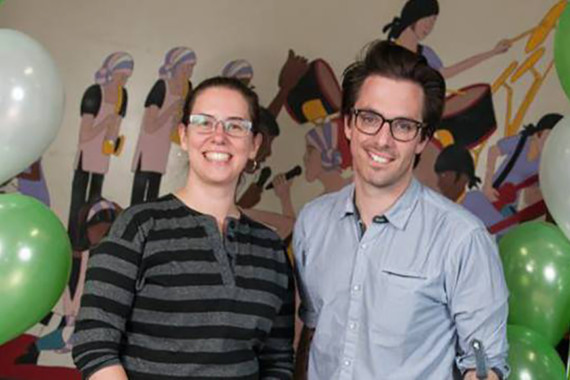HRM learning networks delivering on literacy programs
, With 0 Comments, Category: Literacy Matters,Literacy and numeracy skills are essential for navigating life in today’s society. More and more jobs require proficient reading, comprehension, math and, more recently, digital skills.
To help identify the status of literacy in Canada, researchers of adult literacy developed a five-point literacy scale to categorize one’s level of literacy. Generally speaking, at level five on the scale, the individual is entirely equipped (in terms of literacy) to work in a knowledge-based, rapidly changing, digitally-driven economy.
At level three, the individual is on the cusp of having enough reading and comprehension skills to get along in a workplace where understanding and conveying information are key skills.
The statistics show, explains Alison O’Handley, executive director of the Dartmouth Learning Network (DLN), “about 50 percent of adults in Nova Scotia have yet to reach that level three [of literacy] and are deprived of opportunities to live and work [more fully] in a modern environment.”
Canadian society, as a whole, did not fare much better. And the stakes of literacy deprivation are incredibly high.
“Canadians with low literacy skills have lower incomes, higher unemployment, poorer health and die earlier than Canadians with higher levels of literacy,” reads the Bedford-Sackville Learning Network’s “Literacy Facts” webpage.
The good news is, entirely free and proven literacy programming is available to adult residents of HRM wanting to acquire more literacy, numeracy, and digital skills.
According to O’Handley, “the bulk of the learners … have attended some junior high school but [are] unable to advance in their job — or even get a job — without a GED or high school diploma, and the skills that come with the curriculum.”
The HRM learning networks (located in Dartmouth, Lower Sackville, and Halifax) are just three of 30 non-profit literacy initiatives — found in communities all over Nova Scotia — delivering literacy programs on behalf the Nova Scotia School for Adult Learning, under the Department of Labour and Advanced Education.
Along with traditional subjects, each of the three HRM learning networks now offers some form of computer literacy training.
Volunteer computer tutor Jennie Sanford leads a program designed to increase computer literacy in adults. Over five years, the program morphed into somewhat of a “self-help” group, notes O’Handley, with learners helping learners.
“To me, that’s unbeatable,” says Sanford. “You don’t see that magic happen every day.”
Sanford praises DLN for its “strong community environment and extremely friendly staff . . . who go above and beyond to say thanks to their volunteers.”
Equipping and supporting the volunteer tutors is key to the success of any non-profit literacy program. As O’Handley explains, “there are so many different ways to learn and a variety of methods and strategies to choose from in providing the most suitable learning experience for each learner.”
Volunteers at the learning networks enjoy free training, mentorship and ongoing professional development opportunities, all designed to boost the knowledge and spirit of the volunteers. Ultimately the learners are the benefactors of these efforts — and that’s what the networks are all about.
Dozens of volunteers are required to run each of the learning networks from September to June. At the Bedford-Sackville Learning Network, Ann Roddick, tutor coordinator, is looking for volunteer tutors for reading, math and computer basics. Roddick says the demand for computer tutoring is on the rise.
Phone your local learning network today to discuss learning opportunities and/or to volunteer a few hours a week. You can join at any point during the year. In the Dartmouth area, phone 902-463-9179. In the Bedford-Sackville area, phone 902-869-3838. In Halifax, call the Halifax Community Learning Network 902-422-7648.
As published on http://thechronicleherald.ca/halifaxcitizen/1520117-hrm-learning-networks-delivering-on-literacy-programs


